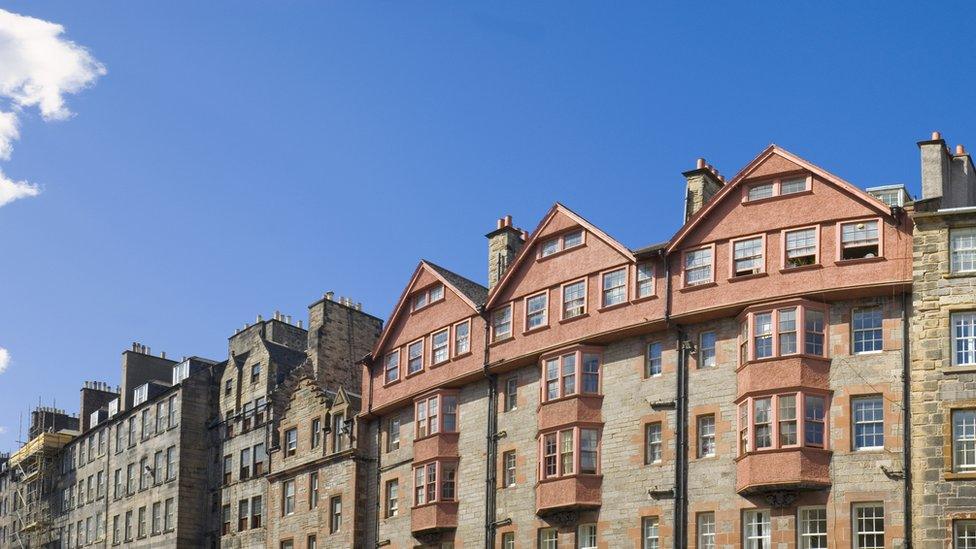Cash for child hunger as council tax to rise 3% in Edinburgh
- Published
There are now as many children in poverty as there are pupils at private school in Edinburgh, the local authority has claimed.
The estimate came from finance and resources vice convener Marion Donaldson as councillors detailed their budget plans for the coming year.
The proposals will see a 3% rise in council tax bills from April.
The council has pledged £400,000 for a holiday "hunger fund" so children can eat outside term time.
The holiday "hunger fund" is a new allocation in this budget for Edinburgh.
Just over 20% of children in Edinburgh live in poverty.
The authority's leisure budget will be reduced but finance and resources convener Alasdair Rankin said the cut would be £150,000 less than the £420,000 previously suggested.
Night noise
As a result Edinburgh Leisure said it would not now have to close any of its facilities, including swimming pools.
The council has also reinstated the night noise team to its budget, giving £255,000 to that fund following a large number of complaints from residents about noise in tenements.
Staff earning under £36,500 will receive a 3% increase in wages, while there will be a 2% rise for those earning over that figure and a £1,600 lump sum for those earning more than £80,000.
Other budget allocations include:
£4m for the King's Theatre, towards the £25m it needs for refurbishments backstage, and £1m for Leith Theatre
£2m for measures to tackle homelessness
£925,000 for roads
£1m for playparks (new and old) at £200,000 per year for five years
£8.5m to improve school and other council buildings
Funding to replace 54,000 street lights across Edinburgh with energy efficient lamps by the end of 2020, estimated to cost £15.2m
£4m for health and social care, which the council hopes will be matched by NHS Lothian
£1.5m to look after vulnerable children and £4m for health and social care
£75,000 for museums to be able to be open all week and £50,000 for local festivals
Mr Rankin said this was the eighth successive year of real-terms reductions in grant funding, which he blamed on the UK government's policy of austerity.
- Published24 October 2017
